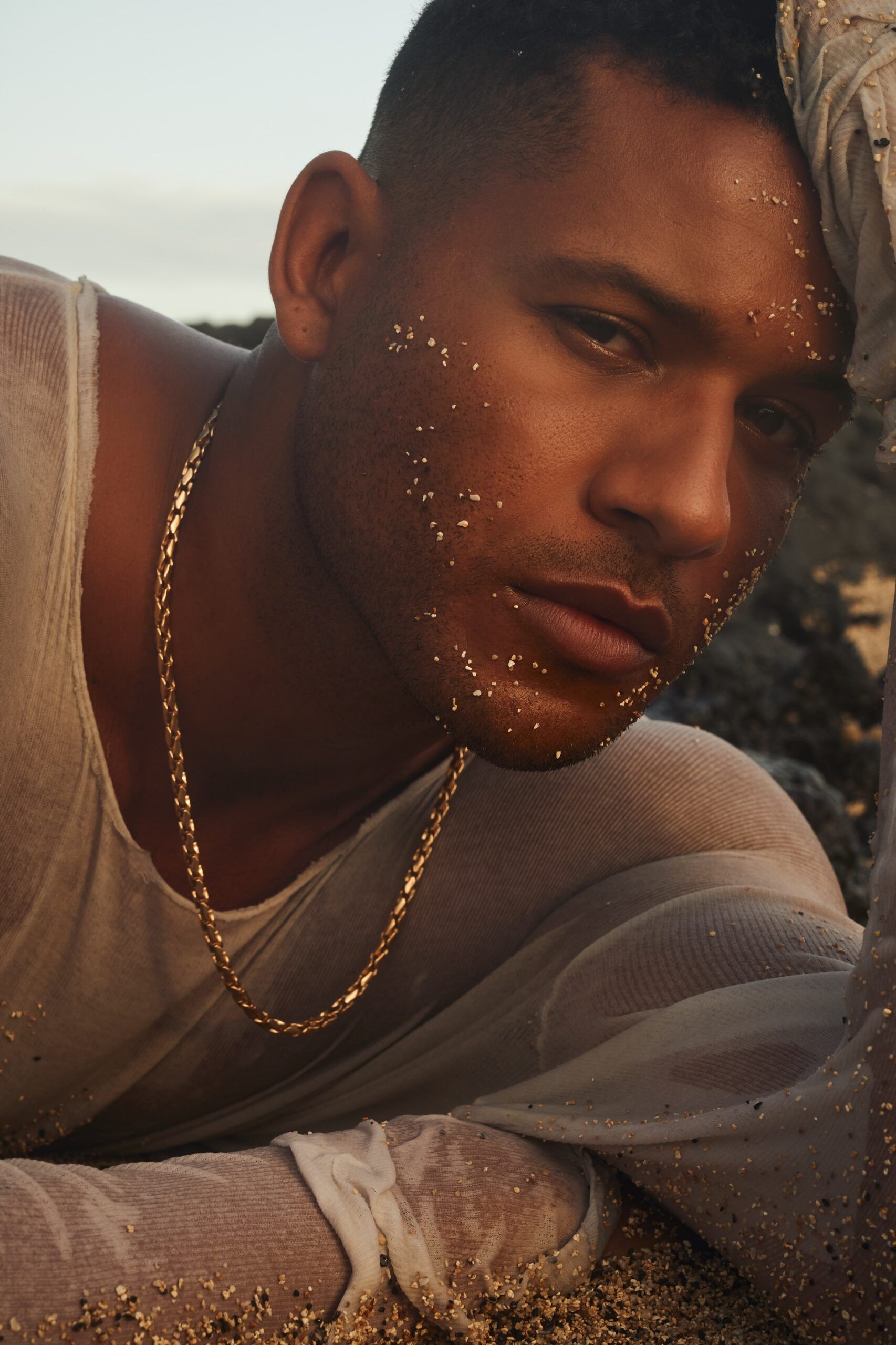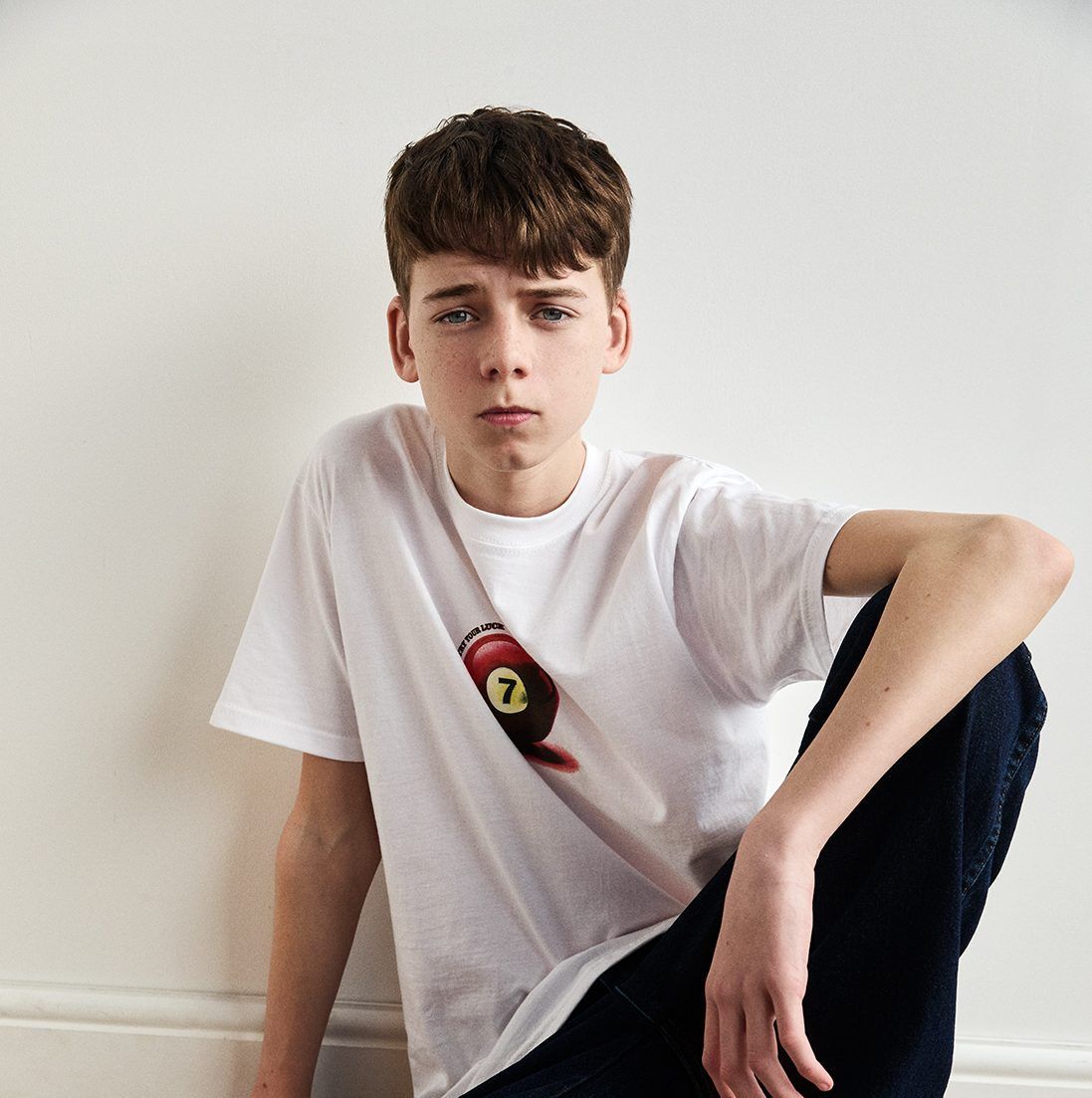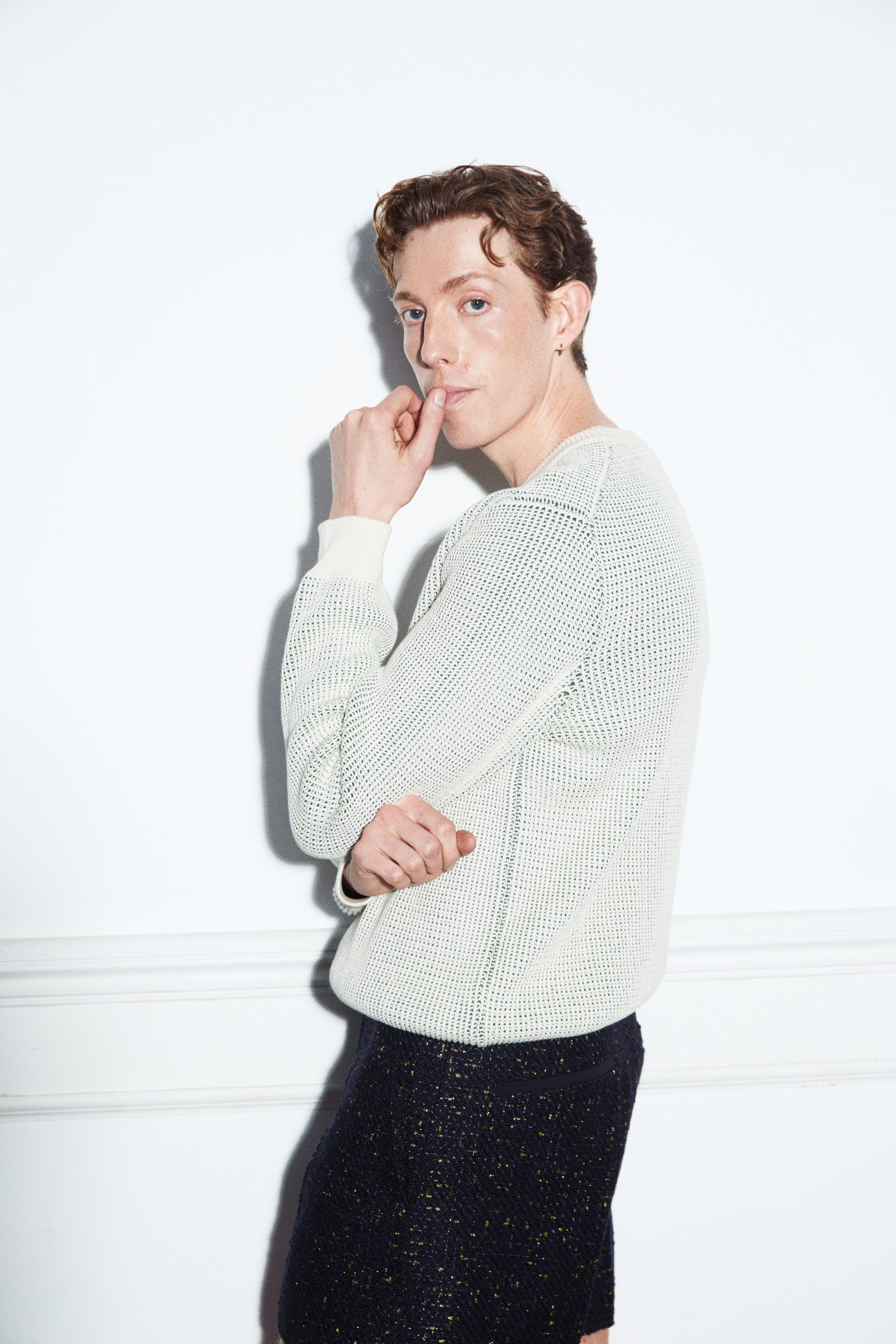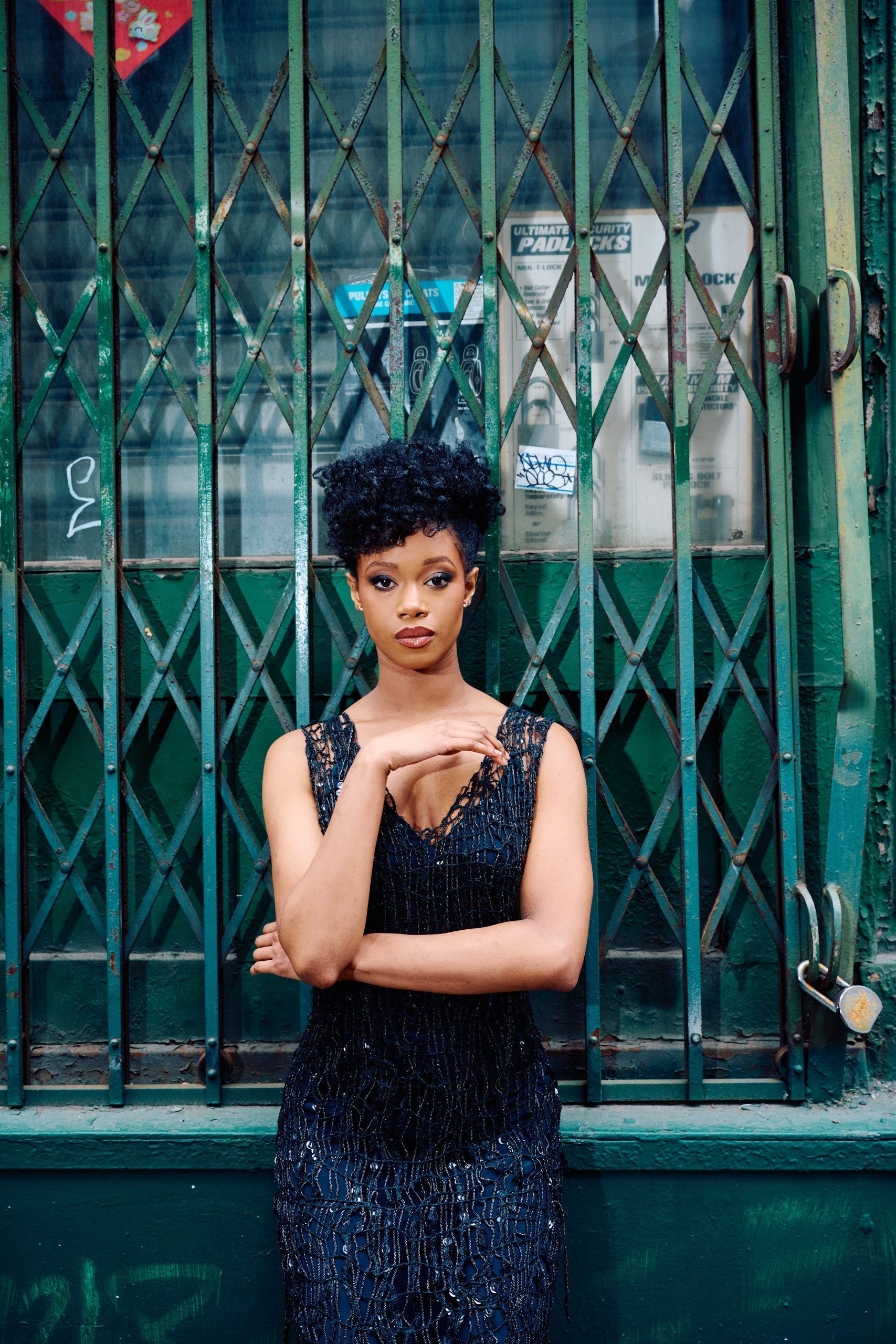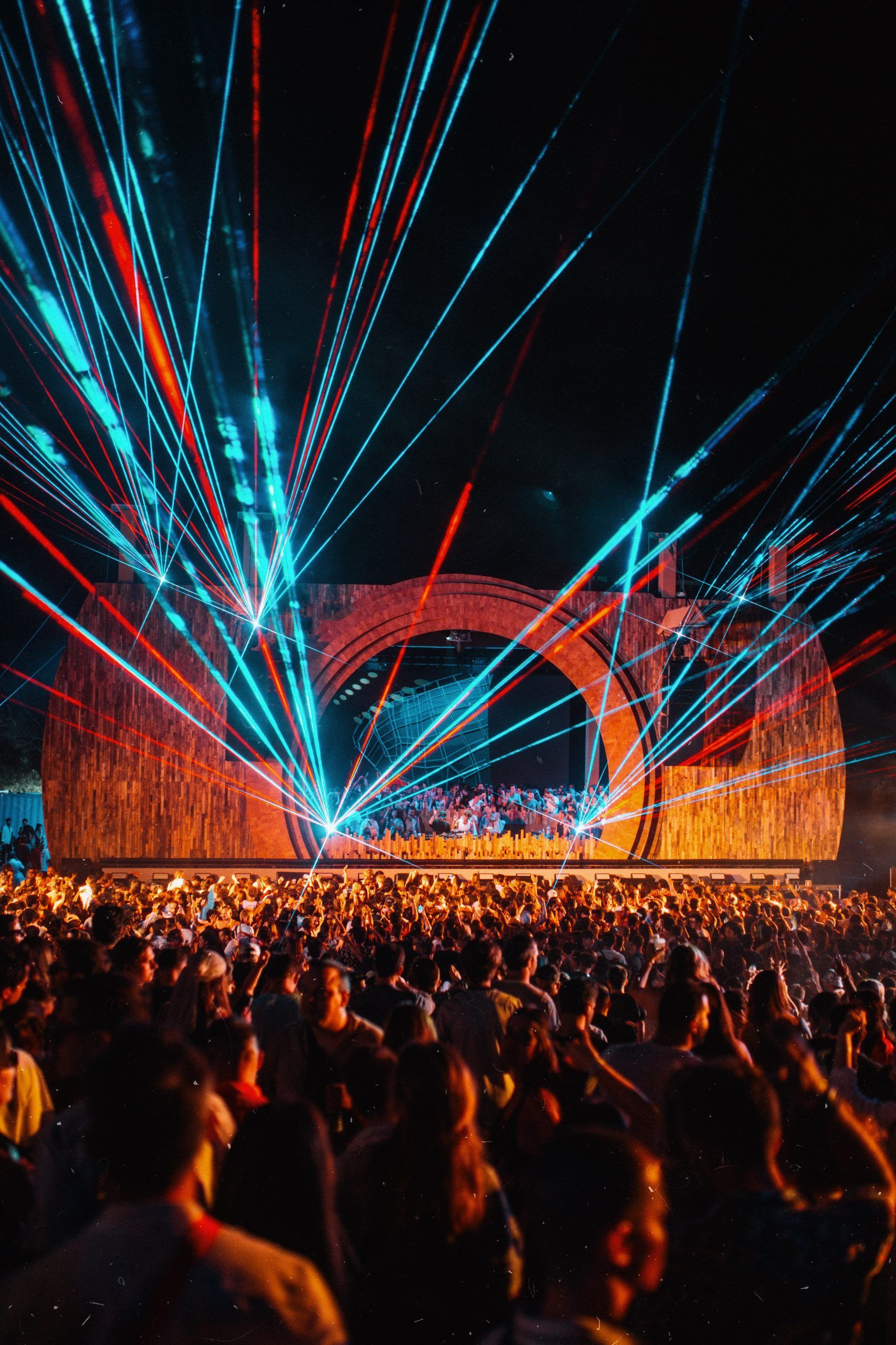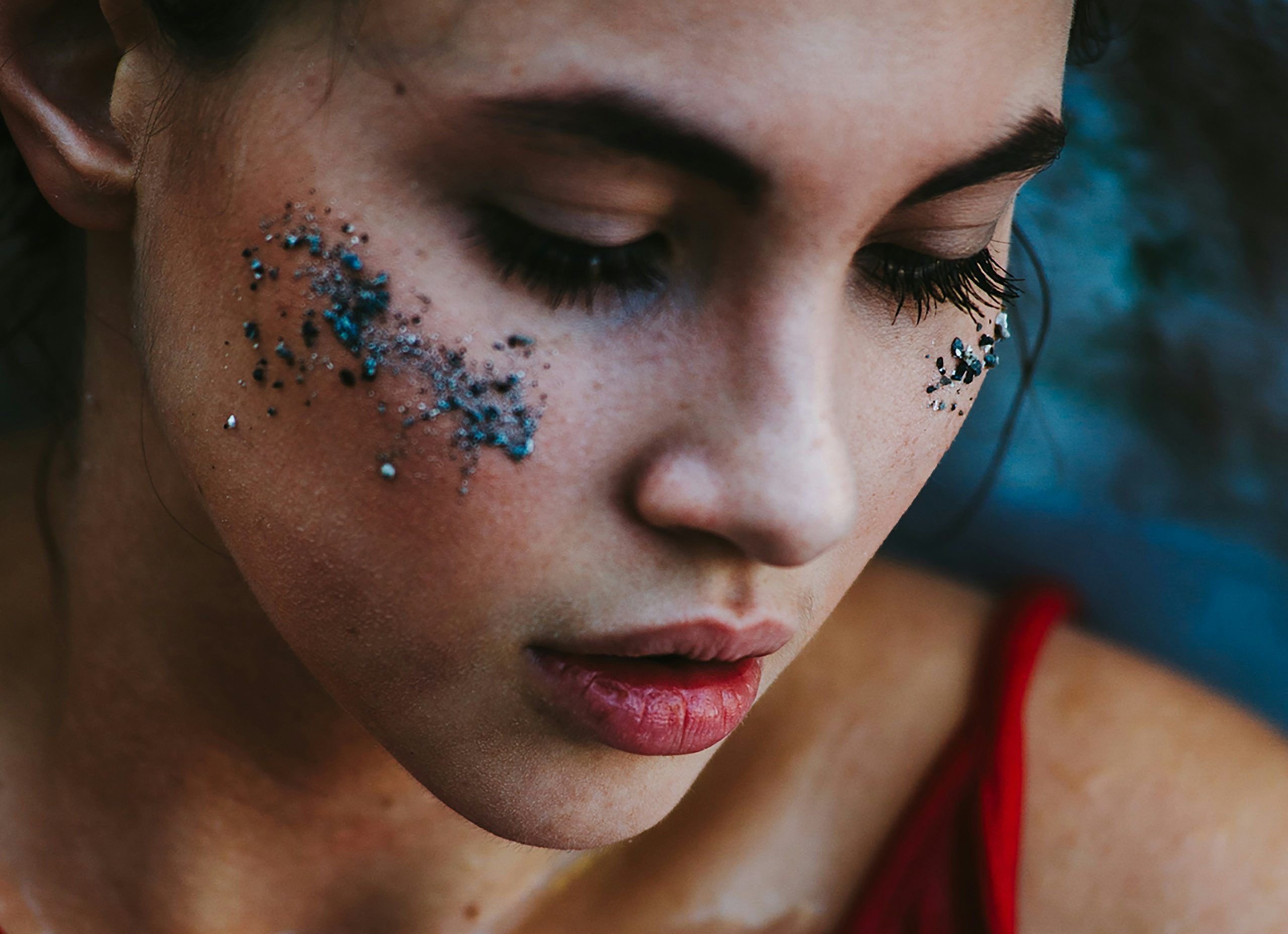After a period of darkness, Jeffrey Bowyer-Chapman is doing more than just embracing the light — he’s revelling in it.
It takes strength, perseverance, and a sheer amount of empathy to continuously get back up when others are desperate to see you fail. For actor Jeffrey Bowyer-Chapman, who embodies what it means to lean into one’s truth and passions, allowing others to sway him from his calling was an outcome that never even entered his mind, no matter how hard they tried. After such a tumultuous time dealing with a lot of negativity, Bowyer-Chapman feels like he’s on the other side; steadfast in his quest to make the much-needed changes in the industry he works in and to continue to portray authentic characters that are not only representative of today’s society, but also allow him to make himself feel good in the process.
To say he is a bright, effervescent, and welcoming individual would be a bit of an understatement; even on Zoom he vibrates on another frequency, excited to talk about everything from Zodiac signs to his new role as Charles on Doogie Kameāloha, M.D. It’s the first project of his in some time that, in tone, seems to mirror Bowyer-Chapman’s current mindset. Although Doogie Kameāloha, M.D. isn’t a direct continuation of the early 90s hit show Doogie Howser, M.D., the messages and themes that were prevalent in the latter are just as apparent in the former as viewers what child prodigy Lahela “Doogie” Kameāloha navigate what it means to be a teen that also is beginning her (very early) medical career.
1883 Magazine’s Kelsey Barnes chats with Jeffrey Bowyer-Chapman about his new role on Doogie Kameāloha, M.D., what it’s like to deal with hatred and bullying both as a child and as an adult, his growth as an actor, and more.
Your first acting credit was back in 2004 as a model on the show 969. When you look back on your time as an actor, and even as a model, how do you feel you’ve grown and changed between then and now?
That was 16 or 17 years ago, but I feel like I’m still very similar in many ways. The core of who you are, I think, never really changes. The only reference I have is what my friends from small-town Canada have said. One of my best friends Jessica mentioned to me that her sibling asked if I’ve changed a lot since coming out to LA and working so much and she essentially just said that I’ve changed because I’ve had different life experiences and travelled the world while also learning how to project myself and navigate an industry that isn’t exactly kind or mindful of mental health and emotional wellbeing. She said the core of who I am is still the same and to me, that speaks volumes.
It does speak volumes! It reminded me of the essay you wrote for Playboy back in 2019 which I loved. You mention booking a role as a straight military character that gave you a lot of financial freedom, but you did not feel passionate or fulfilled with the role so you left the show. There’s so much power in chasing over what fills you with passion rather than monetary fulfillment. What was it like making that decision?
I’m so sensitive so I’ve always been somebody who goes towards what feels good. I was blessed to be in that position — to have that role in Stargate Universe and to have that financial freedom to transition from modelling to acting. My original intention in becoming an actor in the first place was to fill the void in some capacity and play queer characters and be representative of queer culture in the community. I wanted kids to turn on their TVs and see themselves reflected on-screen. I knew in that straight military role that I wasn’t being used for that purpose.
I signed onto that show under false pretences; my team at the time told me it was a very open, welcoming set in regards to inclusivity with no discrimination whatsoever with any race, age, gender, sexuality, physical ability or disability. I went into that project expecting to be able to bring all elements of myself to the character and I saw the creators and the leaders behind the show were all straight cis-gendered white men and they just didn’t see the same opportunity to highlight the culture we were in at that time [during the period Don’t Ask Don’t Tell was being repealed]. I tried to share my insights and it was as if I was speaking to a brick wall. I knew I had to go towards what felt good and go where the love was and be used for a purpose greater than myself. That’s actually when I moved to your city of Toronto where I took a step back and went back to modelling to figure things out before moving to New York City.
Making that choice — to leave and seek out roles that feel good — led you to where you are now which normally I would say is beautiful but it’s awful that you were made to feel like you couldn’t be your full self in the character and on-set.
Yeah, it sounds like it was difficult but it was important for me to find different communities and life experiences. I wanted to find my community and tribe and it was a process of trial and error; blindly, naively, stepping out into the world and willing to fall off the cliff over and over until I found what felt good. Unfortunately, it meant leaving Canada. I knew people didn’t know what to do with me, a black biracial queer person, in television and film and there weren’t roles specifically written for people like me in 2009 and before that.
As soon as I moved to New York City, I booked a movie called The Skinny with an all-Black cast and I played an openly queer character. It was just an immediate affirmation that fortune favours the brave and that you don’t necessarily have to stay in something that doesn’t feel good just because all of the external markers are telling you to do so. Just because there’s money and status and all of that, none of it matters if it doesn’t feel good. You have to be willing to let go of what isn’t serving you and go towards where you can be used for a higher good. I feel like I’m still doing that, in my way, every day.
You touched on this already but I briefly want to bring up UnREAL because it was an incredible show and they did something I feel like isn’t common — they rewrote your character to be an openly gay man after him being written as a straight man before. I’d love to hear about that process for you because it must’ve been grounding and solidified for you that the industry is changing and also a sign that we don’t need these cookie-cutter character castings.
What I experienced on Stargate led to me being in a position where that character could be written for me on UnREAL. Since I felt so stifled behind the scenes on shows where I was playing straight characters because I knew the majority of the shows were, like I said, led by straight white cis-gendered men who just didn’t necessarily see me or know the nuance of who I am as a black queer person, I was constantly feeling so small in those environments. I didn’t feel like I could be my truest self even when the cameras weren’t rolling because it was made so abundantly clear to me that it made them uncomfortable.
God forbid straight white men feel uncomfortable.
[Laughs] Yeah, God forbid! Unfortunately, that was just the truth of being on set then. With UnREAL, the show creators Marti Noxon and Sarah Gertrude Shapiro created a safe environment behind the scenes and it was the first time that, although I was playing a straight character, I really felt free to be myself when the cameras weren’t rolling. It was the very first time I felt that way. When the show got picked up, there was a bizarre series of events, and one that isn’t very common in this industry, but we shot the pilot and the network liked the bones of it but they wanted to recast the majority of the actors.
That must’ve been terrifying to anticipate.
It was crazy. It was such a terrifying night in my apartment in Brooklyn back in 2013. When I got the call from Marti Noxon saying that they were not only going to have me on the show but write a character based on who I am which included him being a gay man, I was floored. I knew I wouldn’t have had that opportunity had I not known how horrible it felt to play so small behind the scenes on a show like Stargate. I knew the only way I could continue in this industry, be happy, and maintain a foundation of good mental and emotional health was to be myself. I saw everyone else around me being able to do so, so it was always painful to feel like I wasn’t granted permission to do so until I stepped onto the set of UnREAL.
It’s interesting you say that because I read that what typically attracts you to a project isn’t what big-name actor or director is behind it, but who the actual people are behind the scenes. Sometimes we get so worked up about who is starring in what, I think we forget it’s important to remember those who set the tone for the entire work atmosphere.
Yeah, it’s true. It comes from working on projects where those people who were working behind the scenes that were running the show weren’t able to see my humanity. They didn’t have any references for Black culture or for queer culture. They didn’t have Black friends or queer friends or trans friends or non-binary friends, so they couldn’t write characters or even write dialogue or stories for me to play. Although it has felt like my entire life has been trial and error, I feel like I’m in a good spot now and have had supportive people both on-screen and those who work behind it.
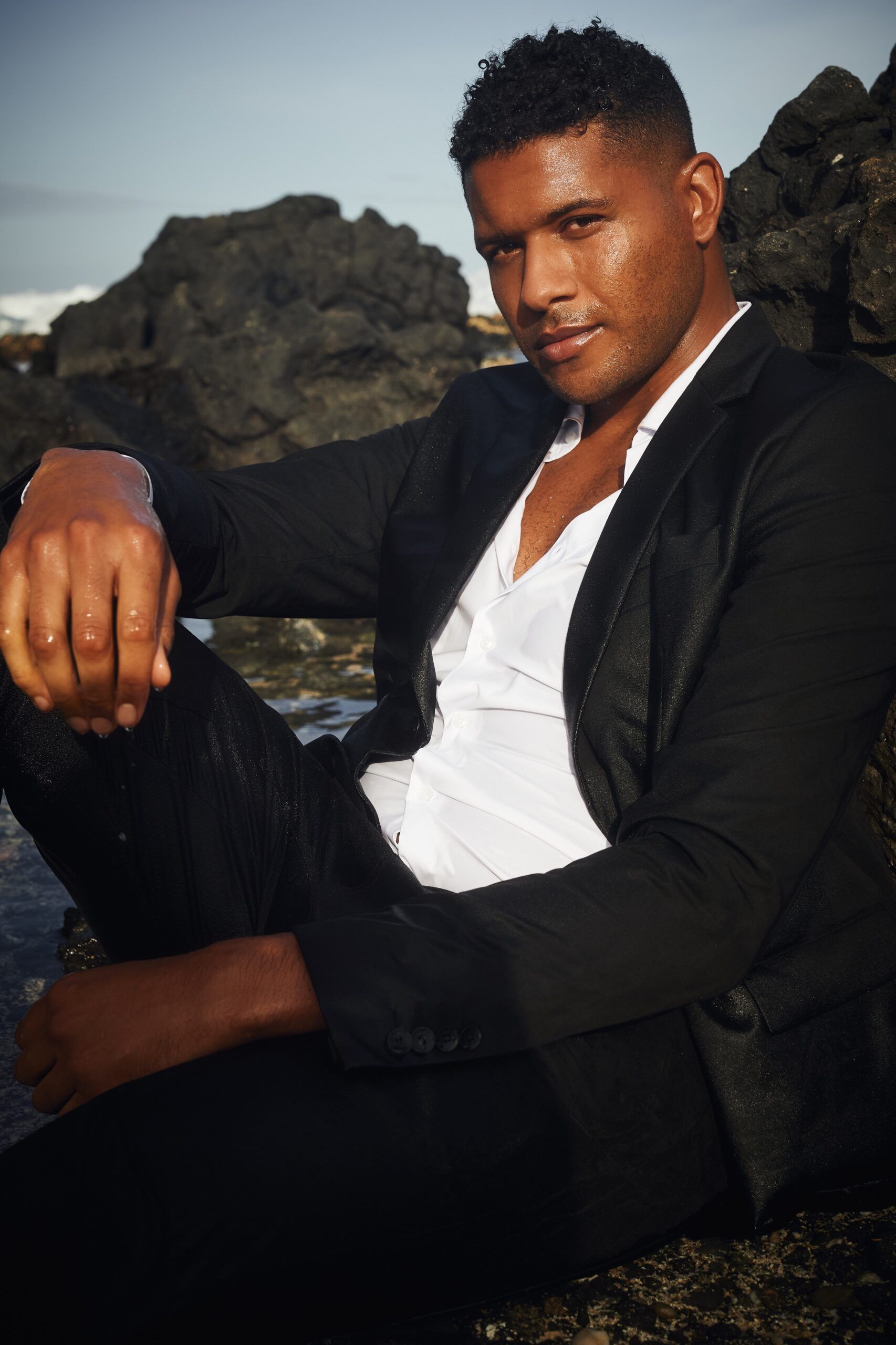
You portray Charles in the Doogie Howser reboot, Doogie Kameāloha, M.D.. Your character is a bit of a fish out of water — he’s from Chicago but doing his residency in Hawaii. I thought there were some really lovely connections and mirroring happening between you and Charles — both from a small-town middle of nowhere being able to experience a new place, much like your journey into Hollywood.
I love that you point that out because the essence of Dr. Charles Zeller is very much who I was at 18 and 19 years old when I first left home for modelling. I was thrown into the industry and had to flounder my way through and figure things out as I went along. There was a sense of true wide-eyed optimism and naïveté in me at that age and I very much brought that essence into the character of Charles. What attracted me to this project was the creator and show-runner Courtney Kane who is someone I’ve known personally for years and she always struck me as such a kind, loving, caring, joyous individual who can make people feel so comfortable immediately.
Doogie Kameāloha, M.D. is a project where I just had to go towards what felt good. I was playing so many roles that were quite dark like on American Horror Story and I was coming out of a time in my life where I had been a part of a project that, although it was a queer show for queer people by queer people, there was a lot of toxicity and a lot of darkness that didn’t feel good. It felt the opposite of how I would assume I would feel surrounded by members of my community. But, once again, being surrounded by gay white men as opposed to straight white men, it’s hard to be seen with all of the nuances of who I am as a biracial Black person. I don’t have the same experiences as white gay men; the world doesn’t see me in the same way and they don’t hear the things I have to say the same way if I was a white gay man. I had just came out of that project and needed something else, so I was signing onto a project that was being helmed by a woman of colour with strong API representation that showcases the lived experiences of marginalized individuals.
To be able to play a queer character in that world on a Disney entity that is going to reach hundreds of millions of people across the world means a lot to me. Knowing young kids of colour and young queer kids will be able to turn on their TVs and see themselves in my character is powerful. It’s positive and it felt good, so I knew that was the direction I had to go in.
Yeah, I feel like a few years ago shows just tried to check some boxes rather than showcasing authentic, diverse stories. Something I love about this show is that the representation is authentic — not just something where it feels like they are trying to check some boxes.
Yeah, these stories and characters are portrayed as being normal because… they are normal. You should see queer people on TV, you should see Black people on TV, you should see people of colour on TV.
Was there anything you did to flesh out the character of Charles?
It’s funny because I had no idea who he was or the extent of his storyline when I first signed on. The show has this comedic tone and is written in a way where we are given the original scene with the original script but we can also refer to a list of five or six different alternate jokes. It makes for a spur-of-the-moment decision that works for the tone of the scene. Although it was scripted, it felt very much improv. I had to just bring the essence of who I was into those lines and see what sticks. I loved that with each scene I played of Charles, I had five or six different versions of him.
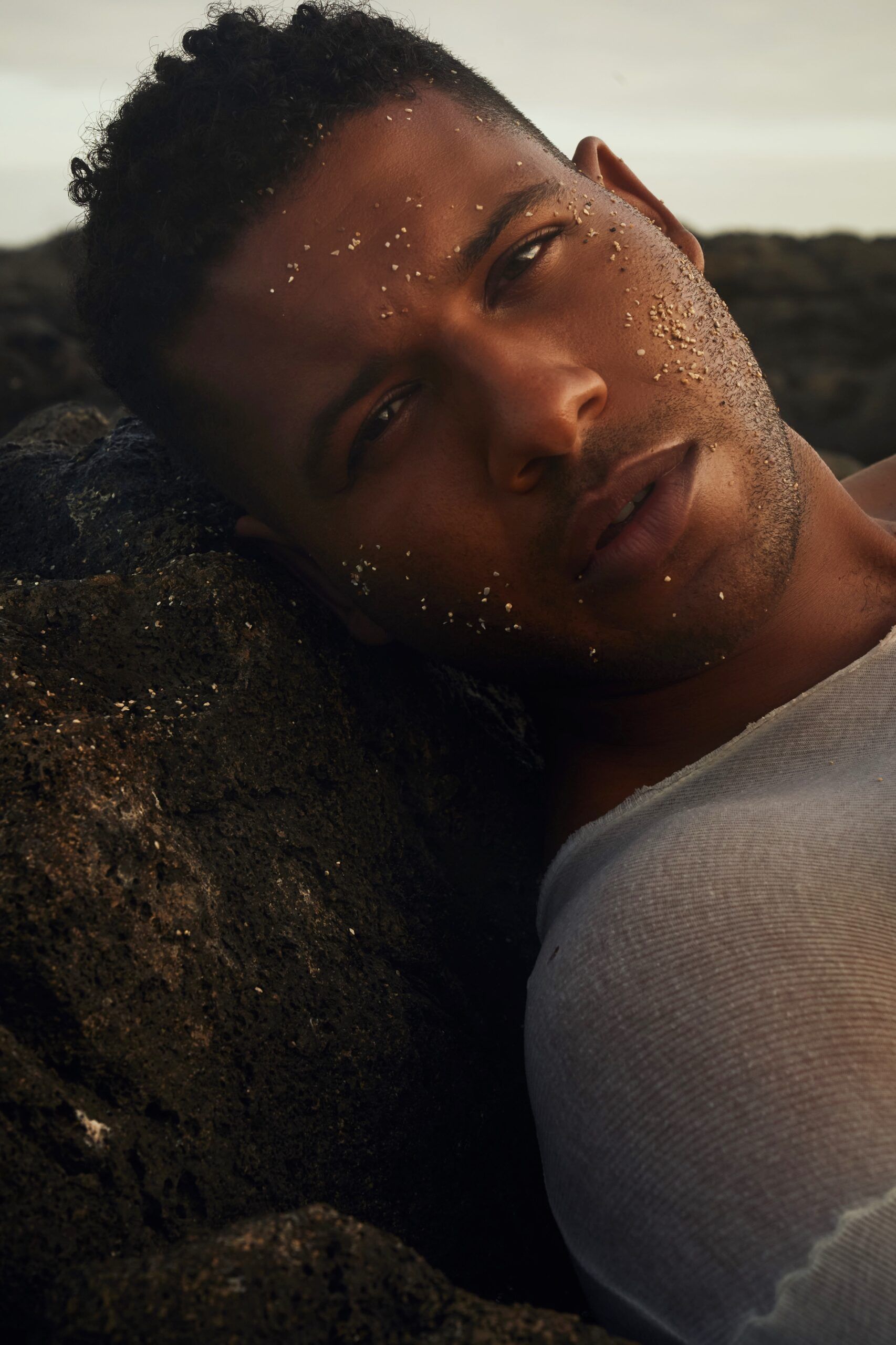
You alluded to a situation you experienced and we don’t have to get into it, but I wanted to touch on the Kent Keith quote you used when taking the high ground. It sounds so strange to hear about a community that prides itself on love and acceptance come at you with such vitriol and racism. Canada has so much work to do in regards to racism and that’s something that people should be angry at instead of being angry at you.
You’re right. Since Canada has a different history than America in the sense — in the way that Black folk have been treated in the past, like how slavery didn’t exist to the same degree in Canada that it did in America — there’s a lot of ignorance in how there still is a lot of insidious racism that exists within Canada. There’s a lot of toxic patriarchal homophobia that exists still, too. I grew up in a really small town in Alberta, a place that they call Texas of Canada. For my entire life I faced a lot of ignorance and undeserved hate; people assuming things about me that just weren’t true based on their ignorance or lack of exposure to queer culture or Black culture. From a young age, I was able to see that ignorance for what it is. It can be hard at times to not take it personally. When I hear the things that people have said about me my whole life — whether it’s just regular negativity or homophobia or racism — I know it’s not true, know they’re not talking about me. They are working on some other issue they are struggling with internally.
I feel like whenever anyone with that much hatred, it’s never coming from a place where it’s genuinely warranted.
Yeah, through all of the Drag Race shit it was so much more than people saying I was a bully. I know my heart and I know what I brought to that show every day on set and they know the amount of love and joy I brought to work every day. I know the amount of respect and reverence I have for the art of drag. That is a show I have a huge amount of love and respect for and I knew that these people grasping at straws are the same people that I dealt with throughout my childhood and teen years. Those people couldn’t look into my past and use that as a point of reference to say that I’m just as horrible as they think I am. I know I’m a good person, I know I’m a kind person, and I know that I come from a place of joy and love. I’ll be honest, I don’t even remember the original question! [Laughs]
Honestly, I don’t either. Reading about the whole thing pissed me off and I just wanted to throw some support your way.
Thank you. It all goes back to the lessons I’ve learned since childhood. Unfortunately, it’s granted me a lot of strength and it’s something I wouldn’t wish upon anybody and it’s something I don’t think that children should have to go through. Having to learn these skills to be able to identify and differentiate between ignorance and truth as a child is incomprehensible.
It’s always marginalized communities that have to grapple with it, too. They are always the ones doing the work for the people who should be doing it themselves.
You’re right! And there are so many people that need to do the work. That whole experience was the time in my life where there was no sense being brought to the nonsense. I needed some time and space away from it to try to make sense of it and to see it for what it really was.
Now that you’ve moved away from so much negativity, let’s end this chat with something I love to ask people — what are you manifesting for yourself this year?
That’s funny that you asked that because I asked people that every year on their birthday!
I saw that your birthday is coming up! Happy birthday to you, a Libra, from me, a Scorpio.
God, I love Scorpios so much! All of my closest friends are Scorpios. I’ve always admired Scorpios because they have this boldness to them and this ability to speak truth to power. They have this mindset of I don’t give a shit what you have to say or what you think about me, I know who I am! They carry this strong sense of self and I surround myself with them to adopt those qualities. In regards to manifesting…. I’d love to manifest a season two of Doogie. I want to go to Hawaii again! [Laughs]
On a personal level, I think the beauty of being on the other side of everything I’ve experienced the past year and a half has allowed me to look at things differently. We tend to silence ourselves and not go forth boldly to pursue things we want because we are scared. It’s too scary to speak your truth and to take that chance and to make a misstep and say the wrong thing. Now that I’m on the other side of that — the seemingly worst thing that could happen actually did happen — I’m in a place where I feel much more strength to continue to speak truth to power in a way that hopefully can be truthful enough. I hope it is universally impactful but graceful enough that people’s ears and hearts will remain open.
Doogie Kamealoha, M.D. is stremaing now on Disney+. Follow Jeffrey Bowyer-Chapman at @JeffreyBChapman.
Interview by Kelsey Barnes
Photography by Hudson Taylor

